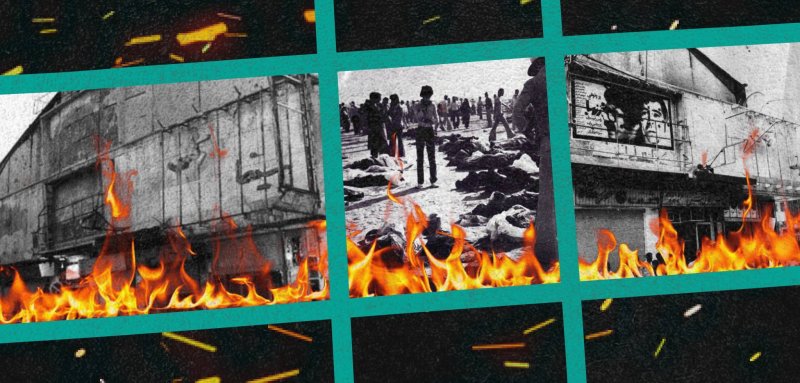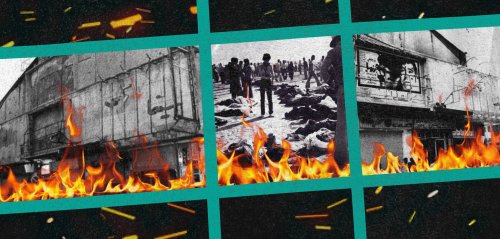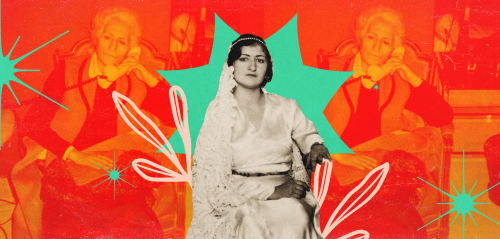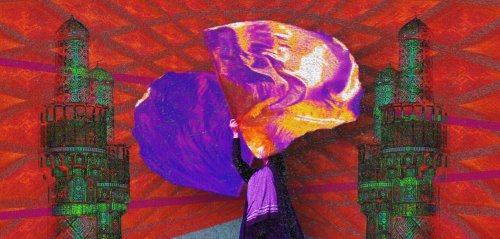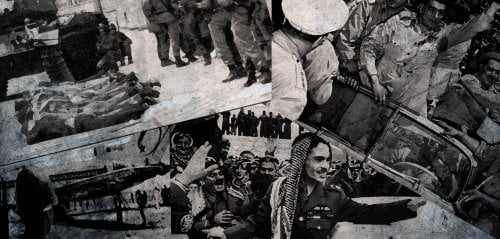When a passer-by asked the old food vendor in front of the cinema, “Why are the flames so transparent?”, he replied, "It's human fat." No one in the city of Abadan will forget that night on August 19, 1978, when people gathered in front of the Cinema Rex, watching in shock and disbelief as smoke and fire engulfed the building.
The incident shook Iran and sparked outrage against the monarchy at the time, before it was overthrown in a popular revolution less than a year later. But this tragic incident remained a black mark in the country's history.
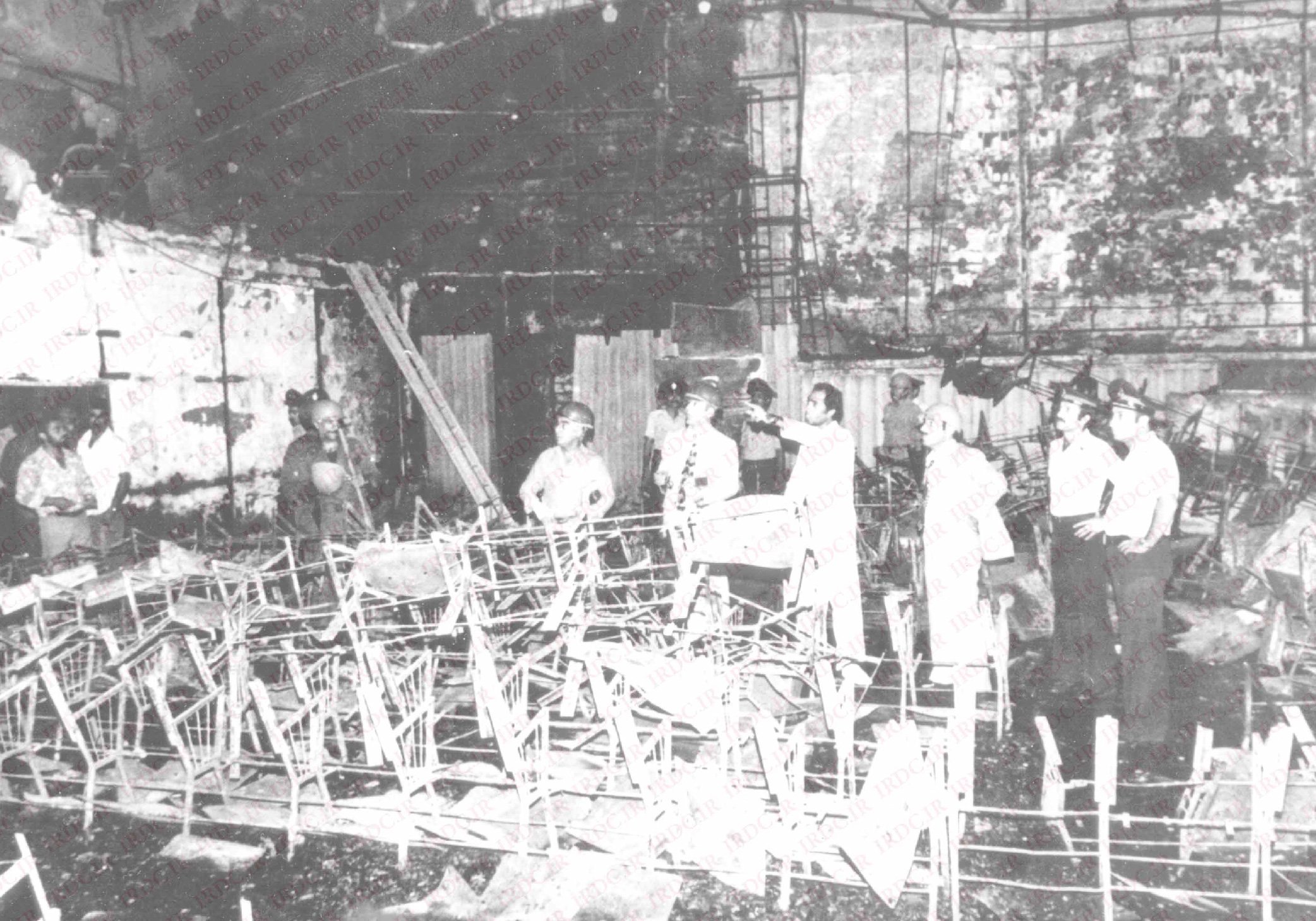 Charred remains of Cinema Rex fire in the Iranian city of Abadan, August 1978
Charred remains of Cinema Rex fire in the Iranian city of Abadan, August 1978
"Just an hour before the smell of grilled meat filled the city and the air, things were very normal at the Cinema Rex. The hall was cool but crowded, waiting for the screening of a film titled 'Gazelles'. People from all walks of life and lovers seeking a place away from the city lights had turned to the seventh art. It is said that 600 tickets were sold for that screening, which started at 8:50 in the evening. The audience sat on their chairs while the smell of sandwiches filled the air. Some of them dozed off during the screening, and suddenly a voice screamed, 'The cinema is on fire'.." That's how the incident was described in the Iranian book 'Cinema of Hell'.
The fire continued until the early hours of the morning, turning those who were in the hall into ashes. Eyewitnesses confirm that they heard strange sounds like explosions. The sandwich vendor explains, "It was the sound of skulls exploding."
The Iranian newspaper Ettela'at wrote at the time: "600 people burned alive in the Cinema Rex, and a general state of mourning was declared in the city, which was experiencing a hot summer. The cinema had been crowded with many people, including one family of ten, who all perished in the fire. Over 100 bodies could not be identified, as the fire had melted them into a mixture of burned fat and plastic. They were buried in a mass grave."
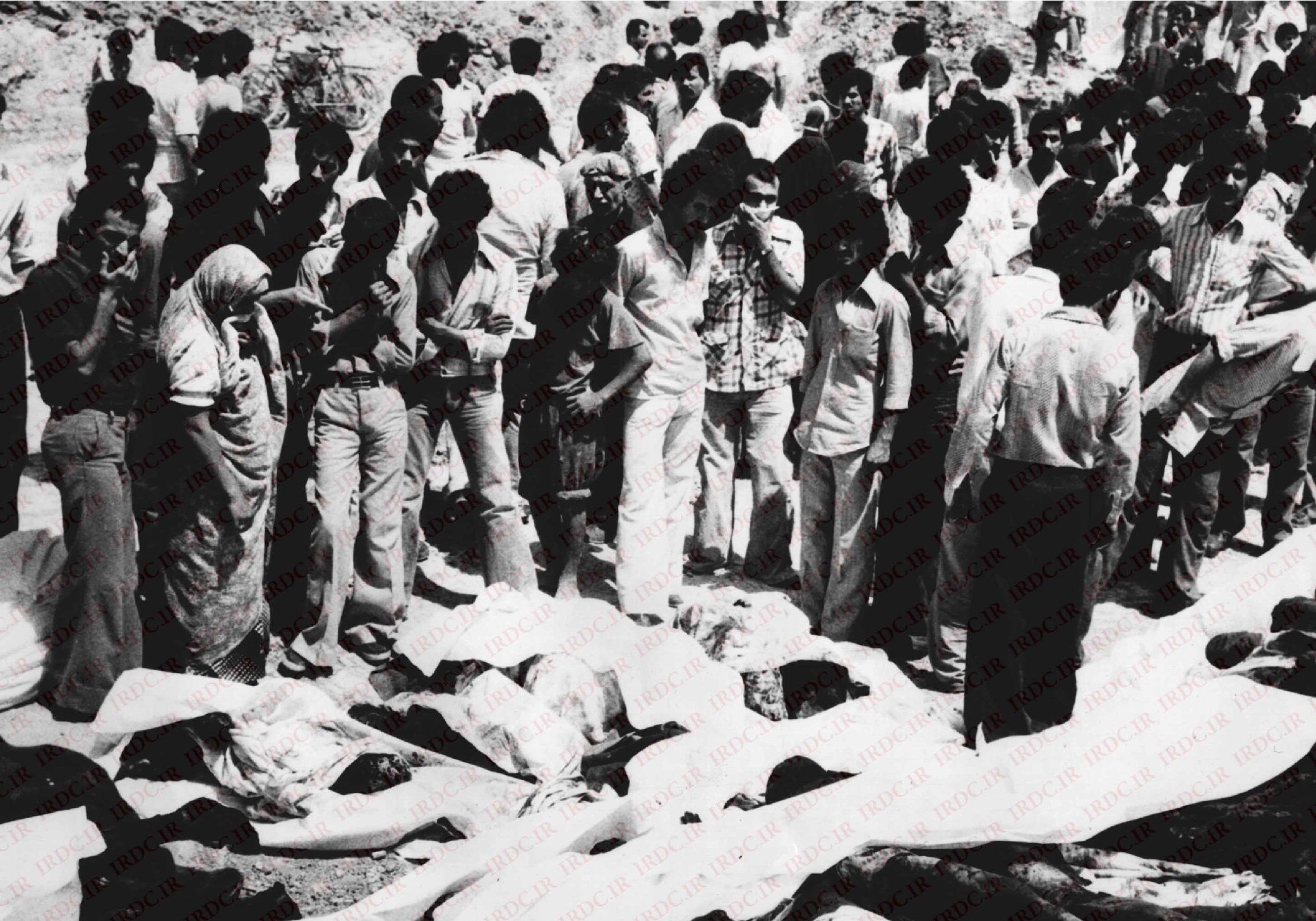 Victims of Cinema Rex fire in the Iranian city of Abadan, August 1978
Victims of Cinema Rex fire in the Iranian city of Abadan, August 1978
The city, known for its liveliness, joy, and celebrations, entered an atmosphere of grief and sorrow full of the sounds of screams, wailing, and crying. There are those whose hearts stopped and died upon hearing the news of many of their relatives being burned alive, while others carried the grief for the rest of their lives. There are those who left the city without returning to it, after the largest terrorist attack in the Middle East during the 20th century shook the hearts of Iranians.
Who set it on fire?
After the tragedy of the Cinema Rex fire, the French news agency stated, "Who committed this crime? What is the impact of this incident on the political transformations of the country?"
The Pars news agency, affiliated with the royal regime at that time, attributed the causes of the fire to saboteurs and vandals, stating, "The Cinema Rex fire was deliberate, and saboteur agents carried out a diabolical plan to burn the cinema."
When asked, “Why are the flames so transparent?”, the vendor in front of the cinema said, "It's human fat". No one in the city of Abadan will forget the night of August 19,1978, when people watched in shock and horror as fire engulfed the Cinema Rex building
Since the beginning of 1978, popular protests against the monarchy had spread throughout the country. Cinemas were seen as symbols of corruption and immorality in the eyes of Islamic revolutionaries, and some extremists had already burned 29 cinemas across the country before the Cinema Rex incident, but they were all closed and empty so they had no casualties.
Anything associated with imperialism or secularism was scrutinized by leftists and Islamists, and cabarets, bars, and cinemas were set ablaze in the early outbreak of the protests. Some individuals even opposed the opening of an Italian circus in the city of Babol. Consequently, the government linked the tragedy of Cinema Rex to what it referred to as agitators and traitors to the nation.
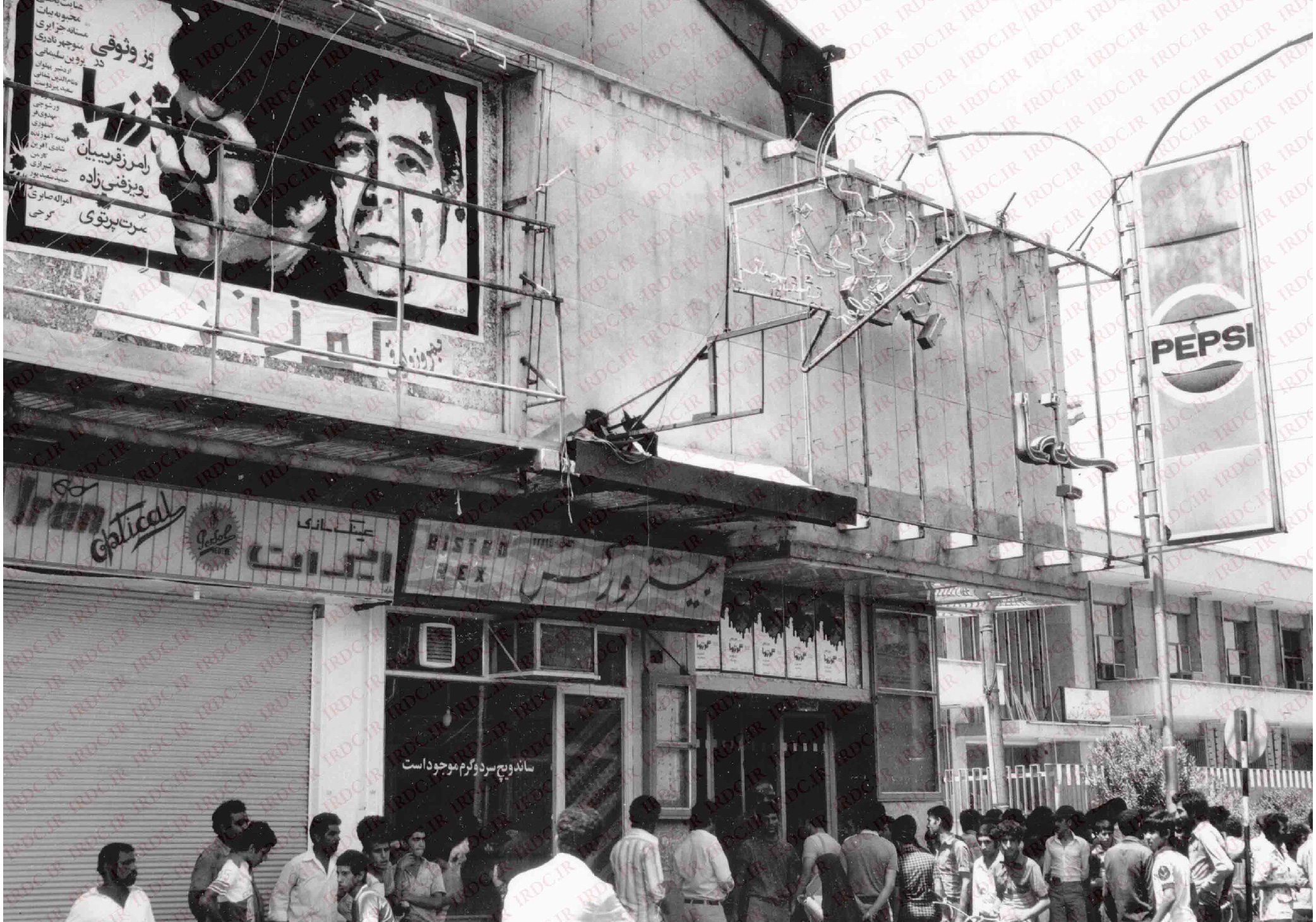 Charred remains of Cinema Rex fire in the Iranian city of Abadan, August 1978
Charred remains of Cinema Rex fire in the Iranian city of Abadan, August 1978
Some argued that the cinema was set on fire because of the film 'Gazelles', which was considered to be oppositional to the regime. Public opinion did not trust the government's narrative and sympathized with the opposition's version of events.
The secret police, known as "SAVAK," arrested some suspects in order to quell the people's anger. However, Ruhollah Khomeini, the religious leader and opposition figure living in exile, considered the incident as "the king's biggest plot to discredit and tarnish the revolution."
The Daily Telegraph wrote, "The security forces are confident that members of the Palestinian Liberation Organization and its base in Baghdad assisted the terrorists who burned the cinema. The distance between Abadan and the Iraqi border is no more than six kilometers. The government stated in some of its news that it was the Islamists who carried out the operation. However, amid the protests and their expansion, they only apprehended a few suspected individuals. This did not alleviate the grief of those who lost their loved ones. This incident generated intense hatred towards the government, and many individuals fully joined the popular revolution to overthrow the king. Five months after the incident, Mohammad Reza Pahlavi, the King of Iran, left under the pretext of a vacation and never returned. A month later, the followers of Ayatollah Khomeini, who had just returned from exile, took control of the country, and the 1979 revolution succeeded."
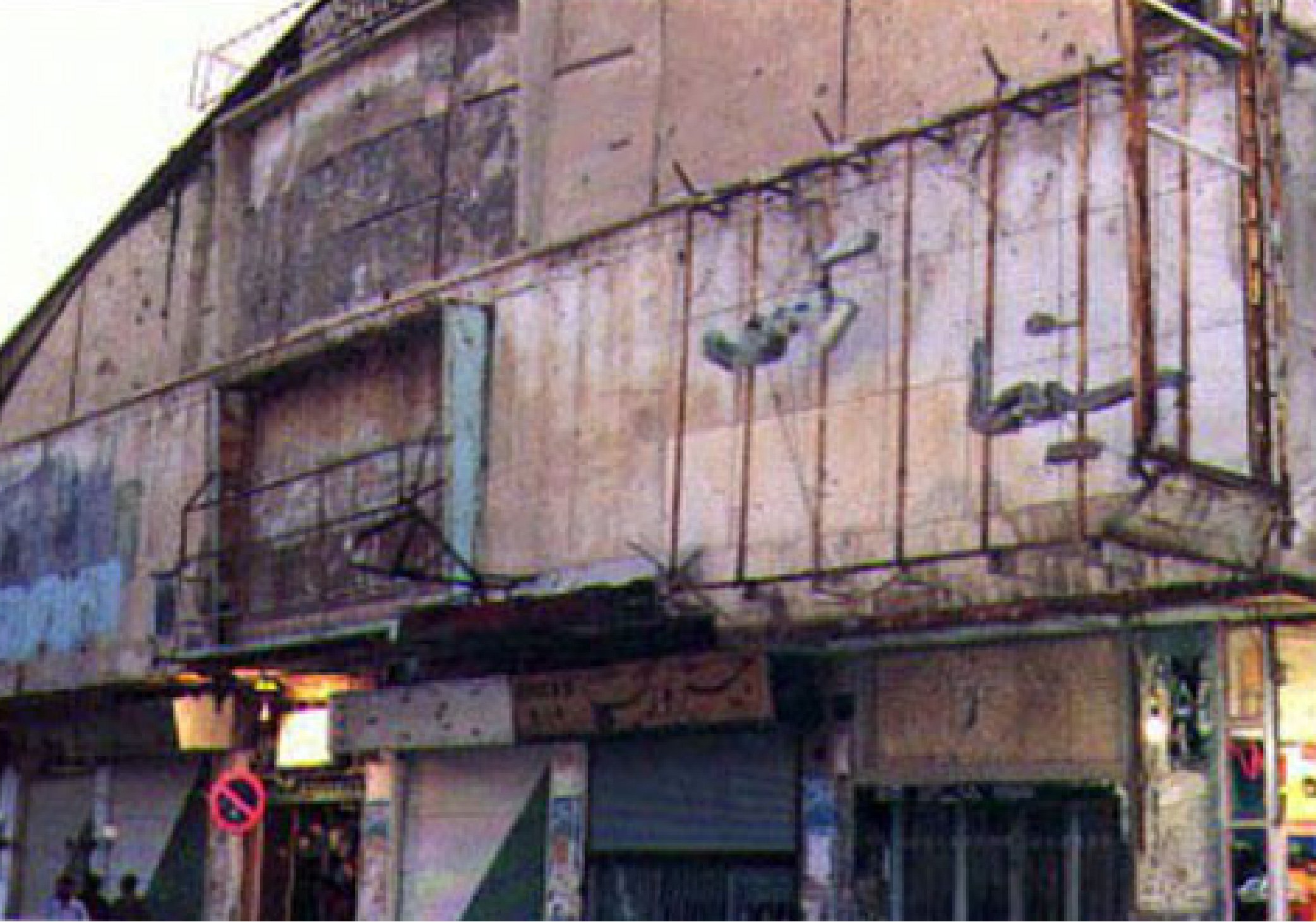 Charred remains of Cinema Rex fire in the Iranian city of Abadan, August 1978
Charred remains of Cinema Rex fire in the Iranian city of Abadan, August 1978
The residents of Abadan and the families of the victims continued to follow the case after the revolution. Some survivors of the fire stated that the Islamic Republic government did not want to prosecute those involved, but popular pressure forced them to do so. The judge in the case was Hossein Mousavi Tabrizi, a revolutionary cleric who was present during the crime and would convey news from Khomeini to the city's residents at the mosque. The court hearings were held in the cinema owned by the oil company. After 20 sessions lasting 50 hours over three days, the trial ended with a 23-year-old man named Hossein Takbali Zadeh being charged.
Who is he and what did he do?
Hossein's confessions in court and his interviews with newspapers and magazines confirm that, "I am addicted to heroin and hashish. I work as a blacksmith and sell drugs. I met a person named Asghar Norouzi in our neighborhood, and through him, I got involved in Quran study sessions."
He had been arrested before the revolution as a suspect in the incident and was imprisoned for a while, undergoing interrogation. However, the deteriorating conditions in the country in the months leading up to the revolution did not provide an opportunity for his trial to take place. With the victory of the revolution, the people stormed the prisons and freed the prisoners, and Hussein was released along with them. While the fire victims's families were pursuing the case, Hossein, during the same period, corresponded with several revolution leaders, claiming that SAVAK had forced him, through torture, to confess and that he was innocent. He presented himself as a revolutionary seeking help from the men of the revolution. He wrote, "In the name of God, the breaker of tyrants," and "What is important is how the people hold me accountable in a national court."
He confessed that during a film screening, he went with three individuals to Cinema Rex and poured flammable substances on the corridor walls. He lit the match, causing the fire to ignite. To avoid suspicion, they returned to the hall to flee with the crowd
He admitted in court that on August 19, 1978, at the time the film was being shown, he went with three individuals to the Cinema Rex. During the screening of the film, they went to the corridor and poured flammable substances on the walls. He was the one who lit the match, causing the fire to ignite. To avoid suspicion, they returned to the screening hall to flee with the escaping crowd. However, his three accomplices were not found. He stated in court, "I believed that this act was a step towards the revolution." He was sentenced to death as an agent of SAVAK, while he continued to insist that he had committed this act for the sake of Islam. Six members of SAVAK, the cinema owner, and the theater manager were also captured and executed.
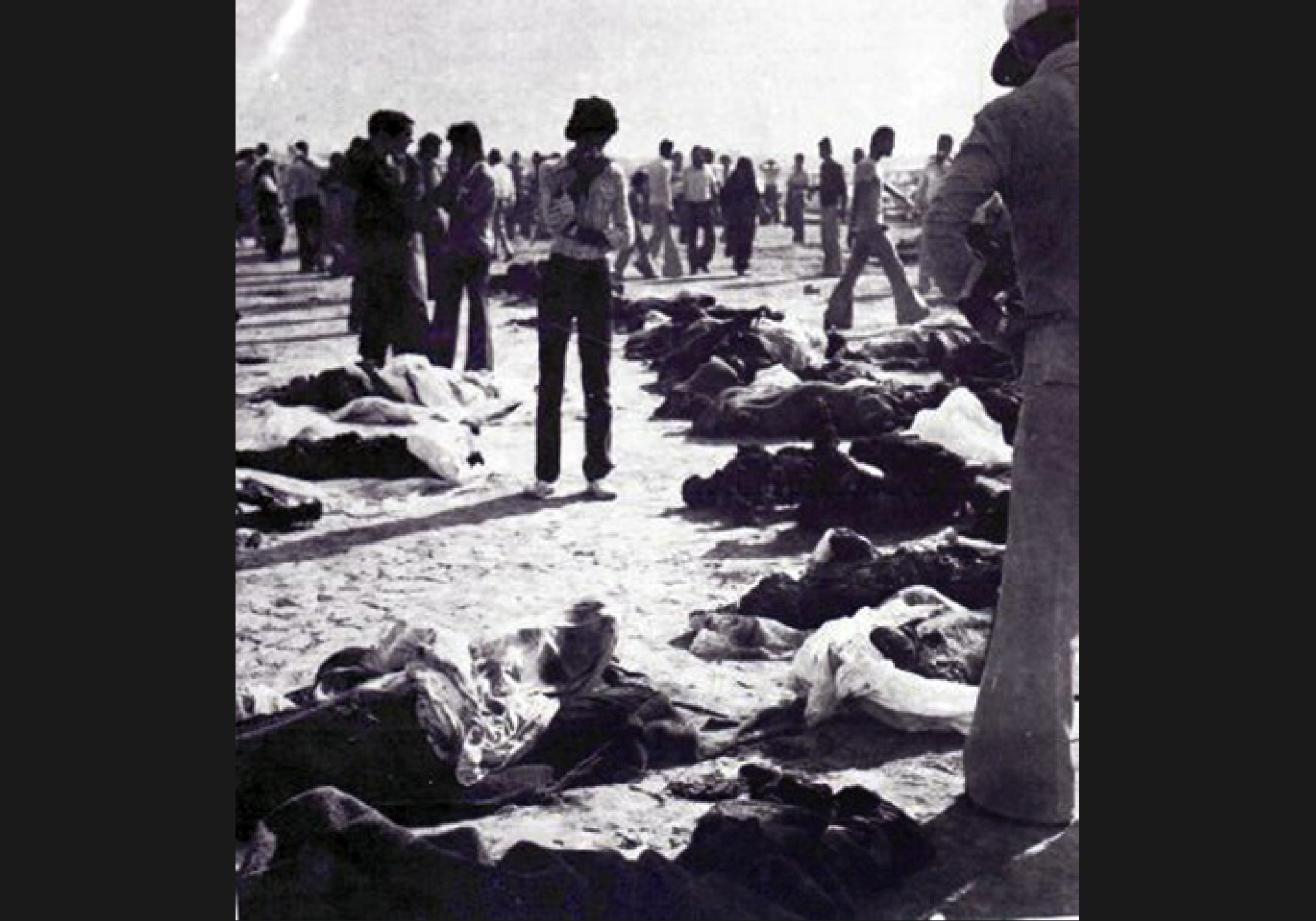 People looking for their loved ones who fell victim to Cinema Rex terrorist attack in the Iranian city of Abadan, August 1978
People looking for their loved ones who fell victim to Cinema Rex terrorist attack in the Iranian city of Abadan, August 1978
Despite 42 years having passed since the trial of Hossein Takbali Zadeh, people still see that his trial was swift, and may have many hidden secrets behind it. Out of 50 recorded hours, only 6 hours remain. No one knows who gave orders to Hossein and his comrades. Why did some of the names mentioned by Hossein in court not appear? And why were the defendants not provided with a lawyer during the court sessions?
To this day, the Cinema Rex crime is still like a smoldering fire with its obscure facts and hidden secrets. But what can be said for sure is that it is undoubtedly the result of an extremist group, negligence, serious confrontations, and fears.
Raseef22 is a not for profit entity. Our focus is on quality journalism. Every contribution to the NasRaseef membership goes directly towards journalism production. We stand independent, not accepting corporate sponsorships, sponsored content or political funding.
Support our mission to keep Raseef22 available to all readers by clicking here!
Interested in writing with us? Check our pitch process here!
